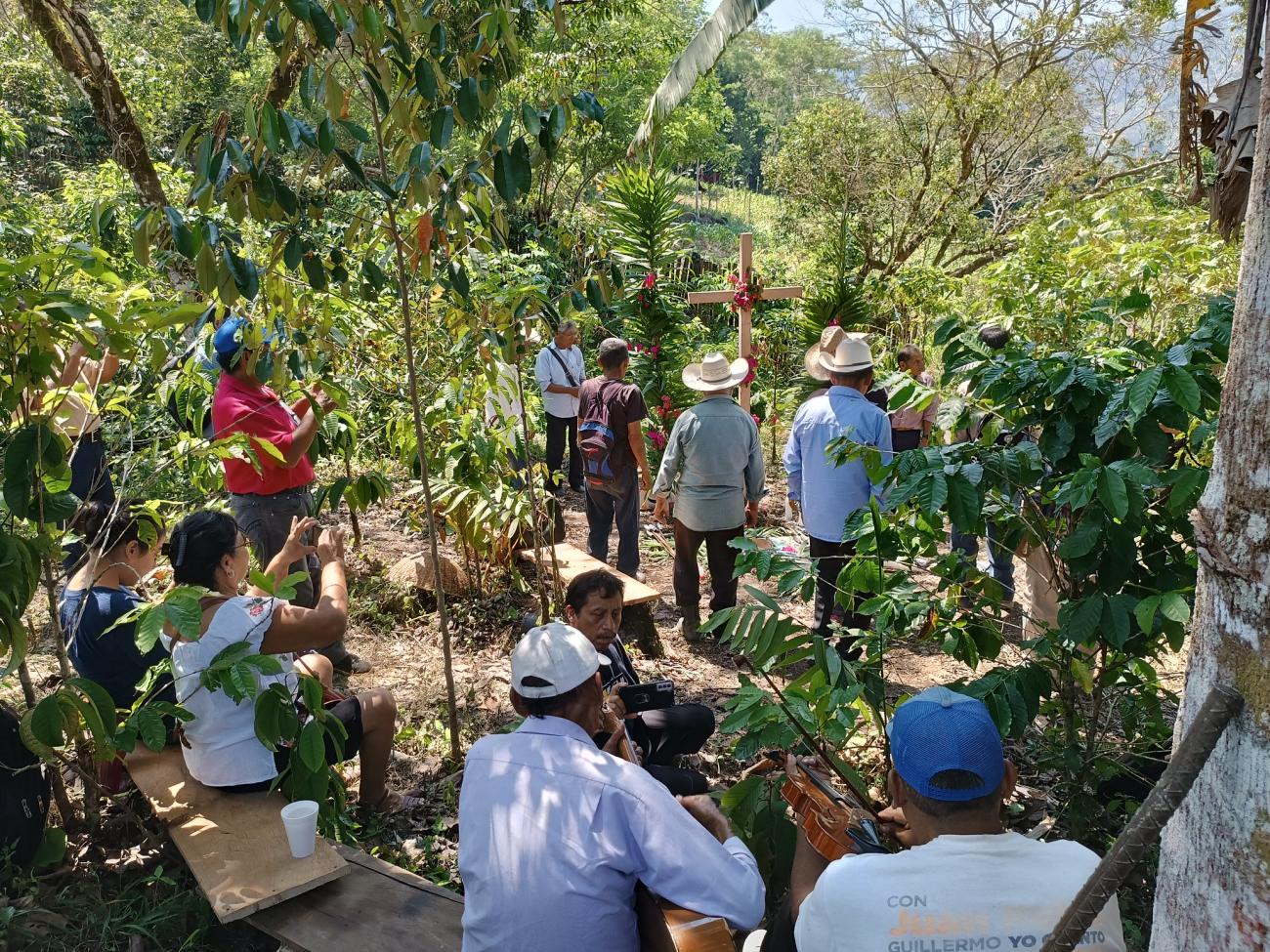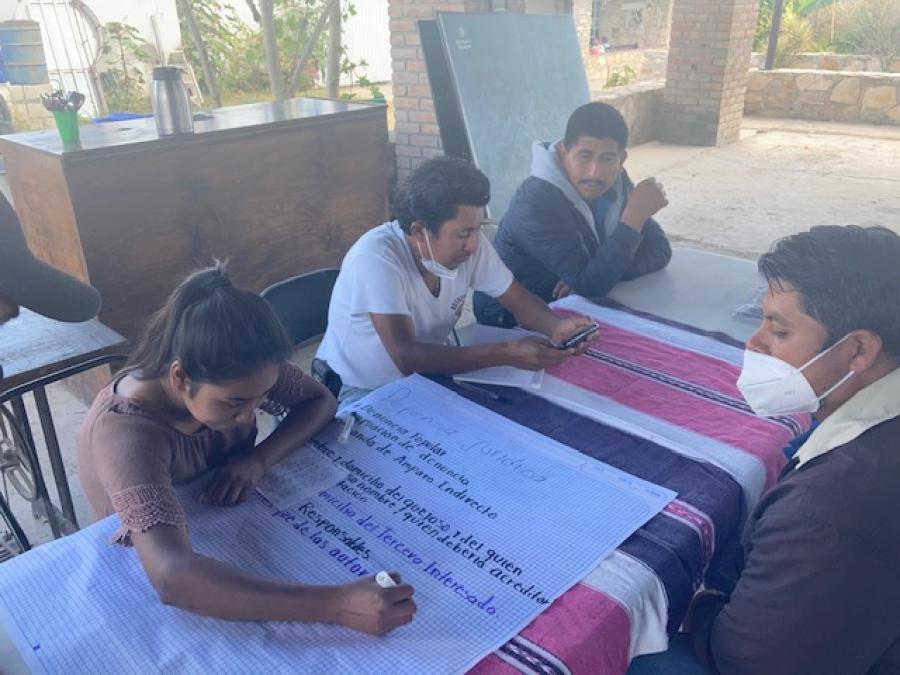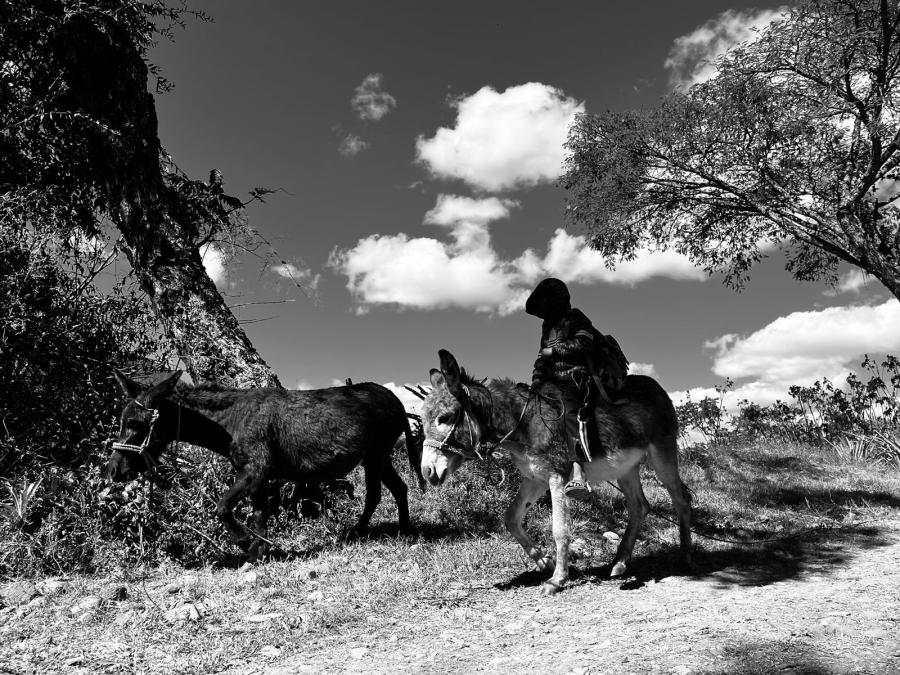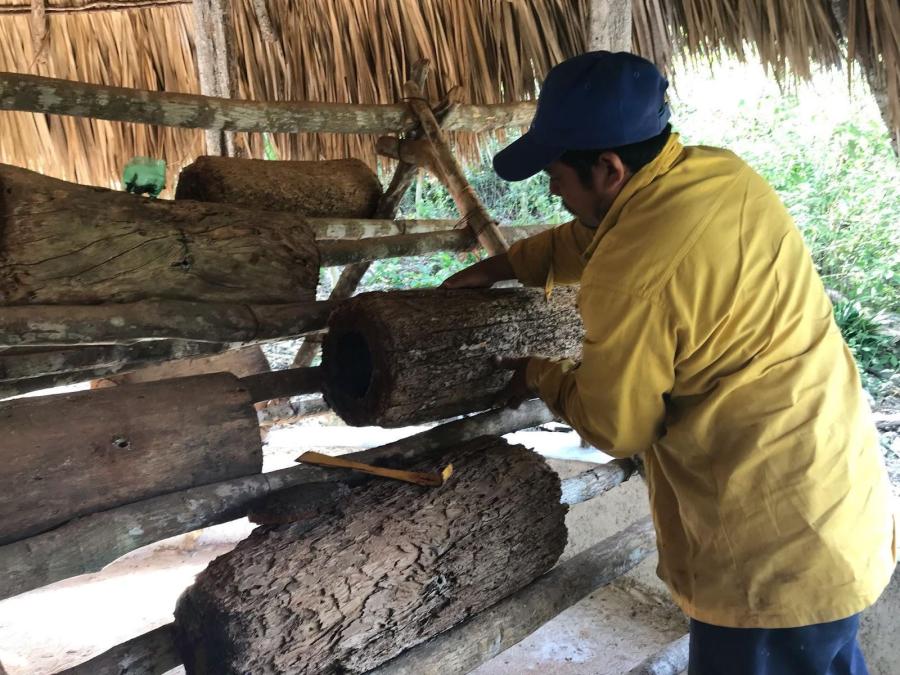
Under the public eye, Mexico has shown itself to be a fervent advocate of Indigenous rights at both the international and domestic levels. In 2007 it voted in favor of the UN Declaration on the Rights of Indigenous Peoples (UNDRIP), and it is a signatory to the ILO 169 Convention on Indigenous and Tribal Peoples. In addition, its constitution lists a number of articles protecting Indigenous Peoples’ rights. Nevertheless, violence against Indigenous Peoples is prevalent in the country.
The current situation in Mexico is dangerous, mostly because of the high level of risk for Indigenous defenders that persists due to violence and intimidation by companies, drug cartels, and public officials, as well as lack of compliance with international standards on Free, Prior and Informed Consent (FPIC). In this context, in July 2023, Cultural Survival and our partner organization Tsilinkalli: Ediciones de la Casa Sonora, submitted a joint stakeholder report on the state of Indigenous rights in Mexico for the 45th Session of the Universal Periodic Review (UPR) of the UN Human Rights Council, which will take place in January 2024. The Universal Periodic Review process assesses the human rights situation of UN member states by peer states and also takes into account information gathered in civil society reports.
Mexico has approximately 126,014,024 inhabitants, of which 23.2 million self-identify as Indigenous, representing 19.4 percent of the total population. There are 68 Indigenous languages and 364 dialectal variants. The most widely spoken linguistic groups are Nahuatl, Mayan, Zapotec, Mixtec, Otomi, Totonac, Tzotzil, and Tzeltal. This sector of the population is in a situation of vulnerability, facing many rights violations, particularly the rights of territorial defenders, who are regularly attacked, and in general, due to the violence of drug trafficking, arbitrary detentions, torture, and disappearances. At times, state security forces are complicit in such acts by fostering impunity and perpetrating violence themselves.
In response, reforms for the protection of Indigenous Peoples have been enacted, but social injustice and unequal access to justice persist. Previously, in the 3rd cycle of the UPR, Mexico accepted several recommendations regarding Indigenous Peoples; however, none have been comprehensively implemented.
Rights violations highlighted in our UPR report span diverse cases, some of which CS has been following closely. Firstly, we denounce the violation of the rights and the alarming number of murders of Indigenous land and rights defenders. According to non-exhaustive data collected by Cultural Survival, so far in 2023, eight Indigenous defenders have been murdered in Mexico and one has disappeared. Most of them were environmental defenders, opponents of mining or other extractive or infrastructure projects. One case worthy of outrage was that of Samir Flores, a Nahua activist who promoted the fight against the Morelos Integral Project through the Amiltizinko community radio station. Samir was murdered in 2019 after questioning the project, denouncing power abuses, and organizing and participating in activities in defense of the territory.
Another violation we denounced is that of territorial rights and the right to Free, Prior and Informed Consent (FPIC). The implementation of this right in Mexico has occurred progressively but is far from being respected to the satisfaction of international standards and best practices. Despite not being included in the constitution, the right to FPIC has the same weight as a constitutional right because Mexico has ratified international treaties that stipulate it. However, this recognition has not been accompanied by a specific legal framework that facilitates a protocol for action and achieves the full development of this right to the maximum benefit of Indigenous Peoples. In Xoxocotla, Morelos, since 2018, the political-electoral rights of the Indigenous population and their right to political representation have been violated. The measures issued to respect this right were not followed in the 2020-2021 local electoral process, and a year later, a consultation was held without the participation of Indigenous Peoples and without complying with FPIC requirements.
Another relevant case of noncompliance with FPIC is that of San José del Progreso, Oaxaca. Here, authorities have not taken into account complaints against the Mining Company Cuzcatlán S.A de C.V., a subsidiary of Canadian Fortuna Silver Mines, for the mine’s negative environmental and health impacts. No consultation has been carried out with the Indigenous Peoples of the affected area in which they could give or withhold their consent.
Regarding the violation of women's rights in Mexico, there is information on the persistent violence in the country. However, the lack of specific data on Indigenous women means that their situation is not adequately represented. Some of the most recurrent forms of violence are discrimination against and stigmatization of traditional midwives and doctors, criminalization of this work, and the forcing of pregnant women to be attended in State health facilities, restricting their desire to be attended by traditional midwives.
Another alarming case is the violation of the rights of Indigenous political prisoners. Kenia Inés Hernández Montalvan, an Afro-Indigenous Amuzga woman from Xochistlahuaca, Guerrero, and human rights defender, was arbitrarily detained in 2020 and sentenced to more than 20 years in prison without justification. To this day, she is still imprisoned without a fair trial and her health has worsened due to the conditions in the prison, where she has even suffered threats to her life.
In 2014, in Eloxochitlán de Flores Magón, Oaxaca, the State criminalized 40 families active in the Community Assembly and its members were persecuted with arrest warrants. To date, several of them are still in prison (Jaime Betanzos Fuentes, Herminio Monfil Avendaño, Alfredo Bolaños Pacheco, Fernando Gavito Marjnez, Omar Hugo Morales Álvarez, Francisco Durán Orjzy, Marcelino Miramón and Paúl Reyes Rosete) and 15 more have been displaced from the community, some of them with their families. In May 2023, two arbitrary detentions also took place against Mazatec campesinos, which indicates that the criminalization of defenders from Eloxochitlán de Flores Magón has not ceased.
In May 2023, Xóchitl Ramírez Velasco, a Zapotec Indigenous woman, was detained by elements of the Anti-Kidnapping Police in Cuernavaca, Morelos. At the time of her arrest, the police mentioned her work as a human rights defender and she has faced several violations of due process. Although it was proven that she could not have been present at the place where it happened, she was charged with the crime of aggravated kidnapping without the right to bail, and she is still in prison, where she is suffering from poor living conditions.
In this context, Cultural Survival and Tsilinkalli: Ediciones de la Casa Sonora urge UN Member States to make the following recommendations to the Mexican State:
- Guarantee due process for all Indigenous political prisoners and ensure their right to an independent trial with a cultural and human rights perspective.
- Provide adequate follow-up to all cases of violence against human rights defenders and, particularly in the investigation of the murder of Samir Flores, take as a starting point his work as a human rights defender and community journalist in order to find the perpetrators and obtain justice.
- Respect and guarantee the rights and security of human rights defenders, journalists and Indigenous Peoples, to avoid repeating the violations committed previously and put an end to the harassment, prosecution and violence suffered by them.
- Recognize in national legislation the modality of traditional territory as a fundamental right for the protection of the territories and identities of Indigenous Peoples.
- Guarantee in federal legislation the right to consultation so that Indigenous Peoples can give or withhold their Free, Prior and Informed Consent for any development project sponsored by the State or private parties in the territories inhabited by Indigenous Peoples and territories to which Indigenous Peoples have traditional access.
- Guarantee the political representation of Indigenous People and respect the right of Indigenous Peoples to determine under which system they participate in the electoral process, be it the representative or party system or the system of usos y costumbres (Indigenous customary law).
- To recognize, through the reform of the General Health Law, traditional midwifery as an ancient practice that is the cultural and social heritage of Indigenous Peoples.
- Improve prison conditions in women's prisons in Mexico, guaranteeing the rights to health, work, psycho-emotional care, access to visits from family and friends, and access to information and communication for women prisoners, taking into account the established rights of Indigenous women.
To the extent that the State accepts and implements the recommendations presented in a comprehensive and continuous manner, protection and respect for the self-determination of Mexico's Indigenous Peoples will be enhanced, and violations of their rights will be reduced.



